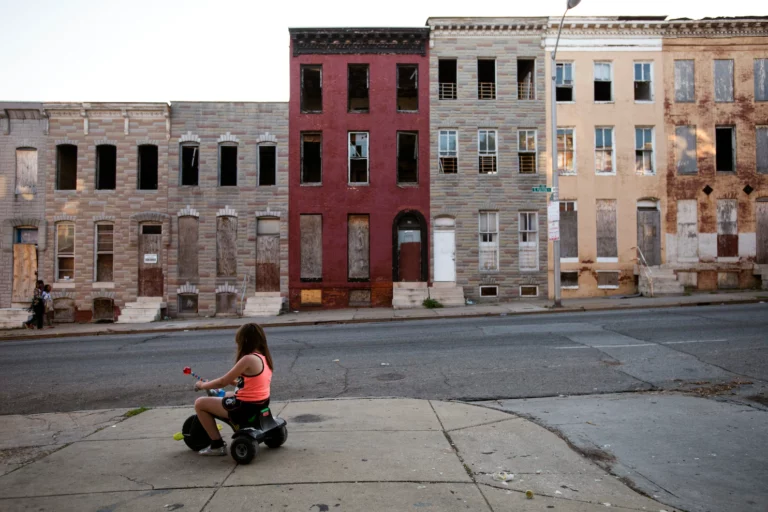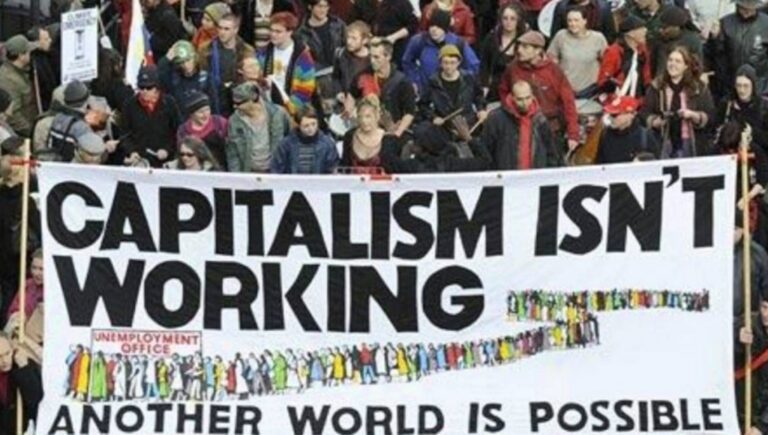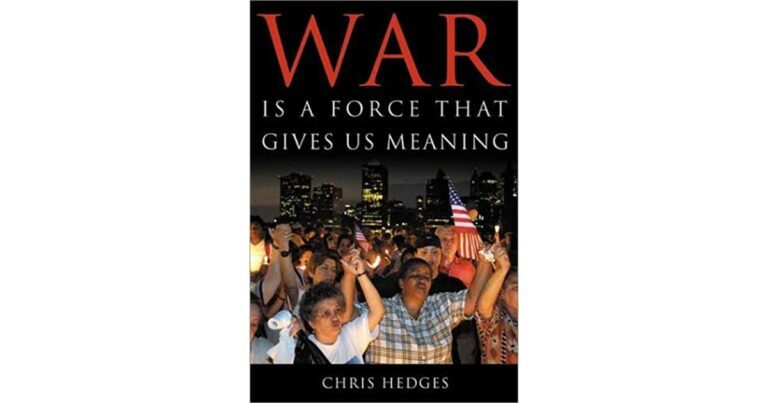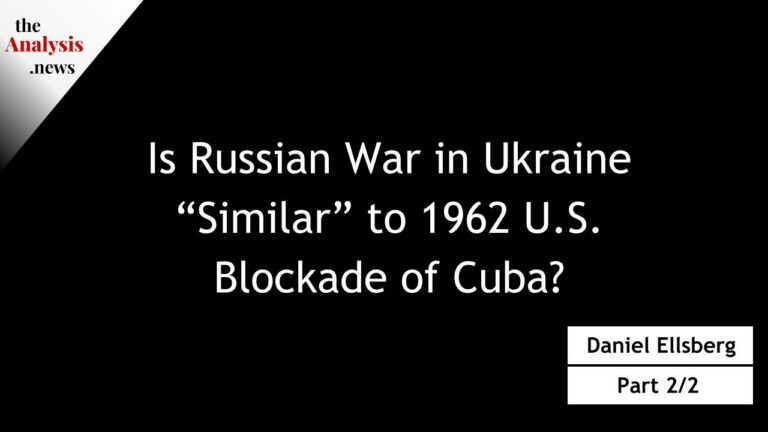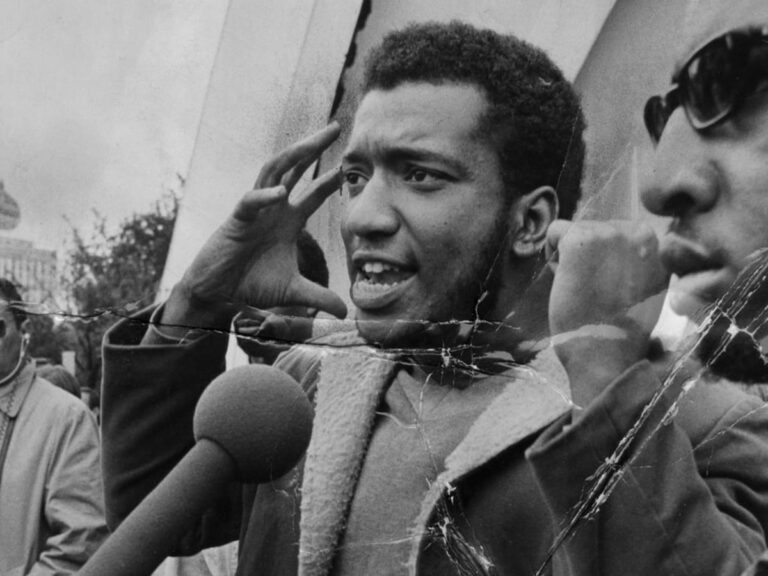Podcast: Play in new window | Download | Embed
Subscribe Apple Podcasts | Spotify | Android | iHeartRadio | Blubrry | Email | TuneIn | Deezer | RSS
On Reality Asserts Itself, Gabriel Byrne says that mutant capitalism seeks only profit and corporate media’s agenda avoids the climate crisis; Byrne says its up to us, no superhero will save us – with host Paul Jay. This is an episode of Reality Asserts Itself, produced November 27, 2017.
STORY TRANSCRIPT
PAUL JAY: Welcome back to Reality Asserts Itself on the Real News Network. I’m Paul Jay, and we’re continuing our series of discussions with actor Gabriel Byrne, who now joins us again in the studio.
You and I have talked about this before. In fact, the first time we ever talked on the phone, you made a comment I thought was really important. The explosion of anger and sense of urgency of the #MeToo campaign, women and men coming forward about abuse. I know you have a personal connection to that, because … we didn’t talk much about it. We don’t need to, but you had a personal experience in some of your Catholic teaching experiences.
GABRIEL BYRNE: Mm-hmm.
PAUL JAY: As big an issue as that is, you said, why isn’t there this level of urgency about the climate crisis? Not to diminish how important, what’s happening with people being able to come forward and speak out and denounce people who deserve to be denounced and many deserve to be charged and criminally dealt with. All that being said, human civilization as we know it is at stake here, and there’s just no sense of urgency, in the culture, in the corporate media virtually ignores the issue. Even in the presidential campaign, a non-issue.
And it’s not like we’re talking end-of-the-century stuff that may be ten years ago, we thought, “Okay, there’s maybe 75 to 100 years.” Scientists are telling us that we’re going to cross that two-degree threshold. Originally, before the election they were saying 2050, but now with Trump’s presidency undoing any kind of climate policy, which was already very weak in the United States, who knows the numbers now. It could be 2040. It could be 2035. We’re going to be … even people our age are likely to live and cross that two-degree threshold, never mind our kids that are likely to hit three and four degrees. And the sciences are saying this is virtually apocalyptic. Hardly a conversation about it.
GABRIEL BYRNE: Well, just going back to something that we talked about earlier that what’s not said is as important as what is said. What’s left out of newspaper stories, what’s left out of television programs is really where you start to look around and say, what’s not being addressed here? And you’re absolutely right, if we don’t get the climate thing sorted out, it doesn’t matter who’s going to be president or what ambitions we have for the future. People are saying that the greatest threat to humanity is artificial intelligence. The greatest threat is climate change.
You would a fool not to at least look at that and say let’s find out more about this. Now, when the tobacco industry understood that cigarette smoking was really dangerous, it employed public relation guys to come and say, “Okay, our industry is going to collapse if people get to know this.” So instead, they knew and the PR people knew that smoking was lethal, but instead of coming out and saying, “smoking isn’t lethal,” they said the best thing to do is to plant doubt. So we’ll get a couple of experts in to say, “Yeah, well, we acknowledge that and we acknowledge this, but the real results aren’t in yet.”
So what they did is they planted doubt, which was a perversely brilliant. It didn’t become an argument about yes or no. It became, “Well, I don’t know,” and the same policy is being used about climate change. And there are people who are being paid the equivalent of those guys who were in smoking commercials as doctors, saying 9 out of 10 doctors smoke camel cigarettes. Looking back on it now, it’s ludicrous, but there are people who are employed to specifically spread the message that there’s a doubt about climate change.
PAUL JAY: Just for people, Real News produced a documentary film called ‘Trump, the Koch Brothers, and Their War on Climate Science,’ which you can find on our homepage, which tells the whole story of the Koch Brothers and others including Robert Mercer, who was the major backer that helped make Trump president. Put millions and millions of dollars into this attack, not just on the science of climate, but on climate scientists themselves to discredit them.
GABRIEL BYRNE: Well, the kind of society we’re living in now the kind of mutant capitalism that we’re forced to confront every day. It’s really myopic in its ambition. Its ambition is to make as much money as possible and damn the consequences of everything and it becomes about this immediate greed and a disavowal of what may happen down the road. How these people can look into their children’s eyes or their grandchildren’s eyes and not assume some moral responsibility for this, I just don’t understand it. Or are they people who are saying, “Well, I’m going to buy a farm in somewhere over there and I’ll be okay, because I’ll have my money and my helicopter and I’ll have people to take care of me.” And that’s their rationale and to hell with everybody else. Because capitalism, let’s face it, it never cared about people. It is about profit and it has always been about profit and it always will be about profit as long as it exists in its present form.
But I also think on another level, in order for society to stay living, to progress from one level to another, it has to have an inbuilt sense of its own survival. It has to acknowledge that the life force is more powerful than anything and if you look back at the history of powerful civilizations — the Phoenicians, the Celts, the Romans, the Greeks — all those civilizations died. The dinosaurs died out.
But we have — because we’re alive now — we have this sense, this life-force sense that we are going to live forever, that nothing can actually impede our survival and we haven’t realized yet that this thing is so close to us that it threatens the survival, maybe not of you and I, but the survival of our children. It’s really hard to look into a child’s eyes and say, “I’m condemning this child to a world that I have not been responsible enough in terms of spreading the message.”
And people look at Hollywood films and say, it’s just … But if you look at what the content of Hollywood films are, lie every single one of them have this huge nemesis that’s coming in on civilization and there’s a hero that stands up to them, like in the ancient myths. Now, it’s Superman or Spider-Man or whatever, they’re all versions of the same thing. A superhero who somehow miraculously stops the evil. That’s reflective of the kind of society, in a way, that we live in, because it transfers the responsibility to the superhero. He will do it. Somebody will sort it out not understanding that the real way to stand up to the evil is collective responsibility.
PAUL JAY: And it’s particularly interesting, the point you’re making, because in the back of people’s minds is capitalism, government. In the end, it has to come to its senses about climate. So somehow it’s going to deal with it, because it’s really such a threat. Even before one’s eyes, one can see the system completely irrational. You get a climate-denier elected president at the time when the smallest window of actually dealing with the climate crisis is before us. And the attention of most of the liberal media and most of liberal Hollywood and so on is on “the Russians are coming.”
Is everything turns out to be true about Russian interference in the elections, it so pales in significance to the climate crisis.
GABRIEL BYRNE: Absolutely.
PAUL JAY: Yet all anyone’s talking about is the Russians, the Russians, and what are they going to do if it turns that there isn’t actually any evidence of collusion, because the rationale is going to be, the way to defeat Trump is through this mechanism of the collusion with the Russians. Maybe it’s all about some financial shenanigans, and yes, some people get exposed. And maybe even Trump is embroiled in some of these financial shenanigans.
The most likely scenario here is worse-case scenario: probably Trump doesn’t run again in 2020 and you get an even more dangerous climate-denier in Pence. And the lack of focus on this issue, it boggles my mind that people who are informed, who at least say they believe the science, and then prioritize it number 14 on their list of things that they speak and get passionate about.
GABRIEL BYRNE: Yeah. Again, it goes back to, I think … in my opinion, the headlines every day should be about climate change and they should be in every single newspaper and it should be on television day after day after day.
We also have, as human beings I think, an innate tendency, like Rip Van Winkle, to sit under the tree and go to sleep and that when you wake up you hope everything’s going to be okay again, but that’s an abdication, in my opinion, of personal and collective responsibility. There’s a two-part system here, as there is in Britain, as there is in Ireland, and there is no sense of that issue being of any importance. I was waiting for it in the election run-up.
PAUL JAY: We got more of it from Sanders.
GABRIEL BYRNE: Yes.
PAUL JAY: And I understand the dilemma. We’re trying to deal with it, too. You got to talk about the things of immediate, where people are suffering from unemployment and so on, but it’s not …
GABRIEL BYRNE: But how do you not also raise climate as a number top-tier issue, because the people in the top tier, those 00.1 percent of the people who control almost everything. I mean, you could have a discussion about whether we live in a democracy or a corporatocracy. You could have a discussion about that, and who really runs the country. But it’s a combination of many things. I’ve worked in the film and theater business for a long time and I kind of see how that plays into a central narrative.
It will be very difficult to make a film in Hollywood about climate change, a fictional film. But on the other hand, the confluence of a celebrity culture and a culture that is addicted to soap opera, needs politics. And what’s going on at the moment now, is a huge soap opera with a political equivalent of JR. I don’t know if you remember watching Dynasty or whatever that thing was called.
PAUL JAY: Dallas, yeah.
GABRIEL BYRNE: Everybody was saying, I wonder what JR is going to do this week. We are all involved and television, involved in a huge soap opera that gets its hits from negative reaction all the time.
PAUL JAY: I was going to say, yeah.
GABRIEL BYRNE: It’s like an addiction.
PAUL JAY: NSNBC has been terrible and CNN, I think, has even been worse.
GABRIEL BYRNE: It’s because they’re making so much money out of this soap opera.
PAUL JAY: It seems to be no other agenda.
GABRIEL BYRNE: They have to also admit somewhere along the line that they were complicit. As much as they hammered Trump in the election of Trump, because when the statistics came out, I think it was 80% Trump and 15% Bernie Sanders, had that been reversed we might be looking at a totally different world but they knew they were selling huge, huge … like Les Moonves of CBS, famously said, “Donald Trump may be bad for America, but he’s great for CBS,” and that is exactly what it was.
MSNBC, CNN, they helped to perpetuate the cycle of avoidance and ignorance and denial that’s going on at the moment. You know, news anchors breaking down in tears because somebody said something about somebody. They should be breaking down in tears about the world we live in. But you see the thing is, CNN, MSNBC, CBS, all of these people have a political agenda. You’re not going to get to be an editor of one of those stations if you think differently and you’re certainly not going to be a reporter. So what you have to do is you have to toe the line of the status quo and you try not to in that and see how far you get.
So those corporations, which are in charge of the dissemination of knowledge, have an agenda and the agenda is very narrow and it does not include climate change. But, I think, that in some way rather than waiting for the newspaper to do it or television or whatever, we have to look at our families. We have to look at the people that we really love and care about and we have to say, “What kind of a world do we want these children to inherit?” Because it does boil down to personal, collective responsibility. I don’t want my children to be living in a world where cities are swamped with water. What can I do? And yet, at the same time, it seems like an overwhelming thing, but as Margaret Mead said, that the feminist said, you know, “Every great movement begins with a discussion between two people.”
Even, discussing it is a political act, even sitting in a restaurant or a bar and saying, “What do you think about climate change? What’s your feeling about that? And how is that connected to the system that we live under? And is poverty and climate and repression and farm policy, how are they all connected?”
PAUL JAY: It’s kind of ridiculous that going on television for an actor, getting interviewed on a late-night show or something, would think it would be some risk to raise some issue of climate. But if you talk about responsibility, I mean, people that have access to public platforms, every damn time they need to work this into the conversation, because corporate media isn’t going to do it and … there shouldn’t be an interview someone does without talking about the urgency of the situation.
GABRIEL BYRNE: But those late-night shows are not geared, those corporations do not want people on late-night chat shows talking about climate change or anything serious. These are entertainments things, yet at the same time, okay, Stephen Colbert and people like that they pass off as commentators, but it’s more Trump stuff.
I think, that if you look at somebody like George Bush, how some people have called a war criminal, and he was a man who reconfigured to an appalling extent the politics of the Middle East. Made gigantic human suffering happen and as a result is still happening. That guy is on late-night chat shows being related to as a folksy old grandfather who paints really bad paintings and is talking about, you know, he’s coming out to criticize Trump saying he’s a blowhard and so forth.
And people are saying, yeah, but you know George Bush wasn’t so bad, you know? He was a guy who, whatever. Our ability to forget, our ability to want to go to sleep, our ability to want to have somebody else solve it for us is part of the human condition and we have to fight against that. And just by having a talk with your kid and by saying to them, you know, you got to tell your friends about this. You got to ask your teacher about this and teachers, you know. Our teachers, nurses, firemen, the people who are the true heroes of the … not basketball players or film stars or singers or rap singers, they are not the real heroes. The real heroes are the people who keep the things going on a day to day basis.
PAUL JAY: So the next question I’m going to ask is, is going to sound a little self-serving, meaning Real News self-serving, and it’s going to sound self-serving partly because it is, but I think it’s also pertinent and interesting. Why are you in Baltimore? Because we talked on the phone. You were watching the Real News and we talked about this. We want to create this climate crisis bureau where we do daily news about the urgency, what solutions like and really get at the scale. So maybe talk about why that struck a nerve with you.
GABRIEL BYRNE: Well, I think one of the most important things on this website is no corporate funding. When you see that you think, okay, these people are not taking money from anybody, so they don’t have a loyalty or a need to please anybody. And it is what it says, it’s the real news and the word ‘real’ has even more of a powerful connotation in the last year or so, with the rise of so called fake news. But a television program that attempts to tell the unvarnished truth not just about what’s going on here but has shines a light on what’s going around the rest of the world. Because going back to what I said about coming to America for the first time, and I think America is an amazing country and I’m not anti-American at all. Just like I’m not anti-British. But the idea that I found strange was that America, for all its huge size was actually a very isolated and introverted country in terms of the knowledge outside influence and what was let in and what was absorbed here.
So you tend to have the world in a vacuum and what happens outside the world … one of the great things on this channel is you do get to see what’s happened in Iceland or Venezuela, or South Africa. It’s opening up people’s minds. Anything that opens up people’s minds to think about the rest of the world, to think about the guy who lives down the road in a different way is something that deserves huge support, because what’s the agenda here? The agenda is to tell the truth. It’s to be real. The agenda isn’t to say, “Well, we can sell more advertising space if we keep talking about Russia and Trump.”
You are passionate about climate change, because you realize the immediate need to confront it and it’s confronting it. It’s not just having an opinion about it. You have to confront it. How do we confront it? Even having a conversation like this, if somebody says, “Well, I’m going to talk to my kid or the guy next door.” That in itself is something that we can all do.
If we unplug ourselves from this negative soap opera that we’re all addicted to which is how brilliantly the main stream corporate media works. If you ever notice when there’s some kind of a major event, the headlines and the music will make it look like it’s a movie. A lot of people when they saw 9/11 on television without knowing what was going on, thought it was a clip from a film. So the media understands very well how drama works. It understands it so well, it understands when to break. It understands back after this. Is America in danger? Will the terrorists come here? Back after this. Should we be on code orange? Back after this. And you’re going, oh my god, code orange, code red, the Russians. They’re all bogey men to distract you from the real bogey men, which is climate change.
PAUL JAY: All right. Thanks for joining us.
GABRIEL BYRNE: Thanks, Paul.
PAUL JAY: I think this is just the beginning of a conversation with Gabriel. I’m going to ask him on camera, that way he can’t say no, to come back and we’ll go live and we’ll take viewer questions and do another session. Does that sound okay?
GABRIEL BYRNE: Thank you, Paul. Cool.
PAUL JAY: Thanks for joining us and thank you. Thank you for joining us on Reality Asserts Itself on the Real News Network.

